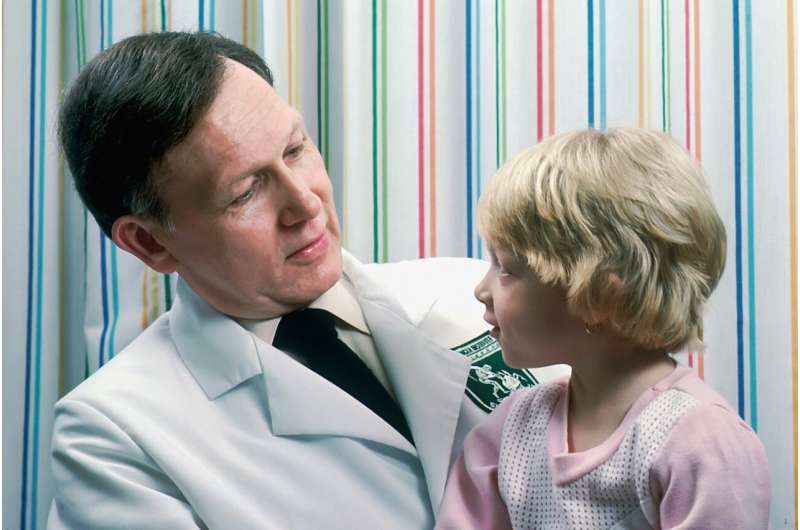Studying the use of patients' reprogrammed T-cells to attack cancer as an alternative to more chemo.
Originally published by Meg Wingerter, The Denver Post, on March 14, 2024
Credit: Unsplash/CC0 Public Domain
A process of taking patients' own cells and reprogramming them to fight cancer has been a last-ditch option for blood cancer patients when nothing else worked, but a new study underway in Aurora is trying to determine whether more patients could benefit from trying the procedure sooner.
Chimeric antigen receptor T cell therapy, known as CAR-T, is a type of immunotherapy that involves taking cells from the patient's body and altering them to attack cancerous cells that have specific proteins on their surfaces. The patient then gets the altered cells by infusion.
A study at University of Colorado's Gates Institute on the Anschutz Medical Campus is looking at CAR-T in adult patients with acute lymphocytic leukemia, a cancer of the blood and bone marrow, whose first round of chemotherapy either failed or gave a disappointing response that suggests it won't work for long, executive director Dr. Terry Fry said.
This specific study is looking for safety and will have preliminary results next year. Assuming it doesn't find any problems, a larger study would test if patients do better when receiving CAR-T rather than another round of chemotherapy, Fry said.
When a cancer therapy is new and carries unknown risks, typically the first patients who receive it are those who are out of other options, Fry said. If it works well and doesn't cause unacceptable side effects for patients whose cancer resisted treatment, then researchers start looking into whether offering it earlier could make sense, he said.
"When we see something is successful, we forget that someone had to be that first patient" and take risks, he said.
Generally, people with the type of leukemia CU is studying have two options: chemotherapy or a bone marrow transplant, both of which can be grueling, Fry said. The advantage of CAR-T, when it works, is that the patient only has to take it once, he said.
"It can be advantageous to take a single treatment, get on with their life and have done with it," he said.



Comments
Post a Comment